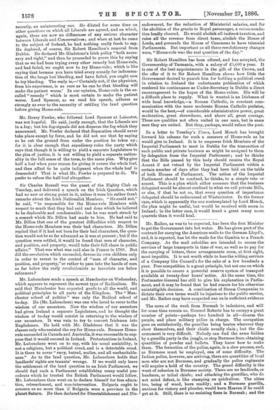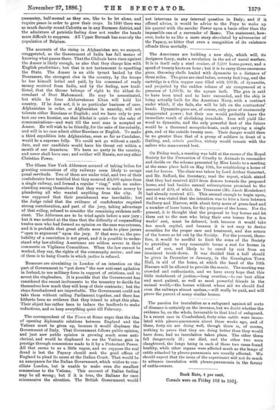The news of the week from Burmah is indecisive, and
will for some time remain so. General Roberts has to occupy a great number of points—perhaps two hundred in all—disarm the people, and place military police in charge. The occupation goes on satisfactorily, the guerillas being beaten wherever they show themselves, and their chiefs usually slain ; but the dis- armament is very difficult. Nobody can find the arms hidden by a guerilla party in the jungle, or stop Burmese from obtaining quantities of powder and bullets. They know how to make them. The formation of the police, again, is a slow process, and, as Burmese must be employed, one of some difficulty. The Indian police, however, are arriving, there are quantities of local men who are not Burmese, and gradually the police regiments will acquire a hold of the country. The grand difficulty is the want of cohesion in Burmese society. There are no landlords, or headmen, or tribal chiefs ; and attacking the guerillas, who do not mind defeat, is like stamping on quicksilver. The cities too, being of wood, burn readily; and a Burmese guerilla, anxious for victory and plunder, would burn Heaven if he could get at it. Still, there is no resisting force in Barmah ; and the ;peasantry, half-nomad as they are, like to be let alone, and require peace in order to grow their crops. In 1848 there was as much dacoity round Calcutta as in any Burmese district, and 'the admixture of patriotic feeling does not render the bands more difficult to suppress. All Upper Burmah has scarcely the population of Belgium.







































 Previous page
Previous page